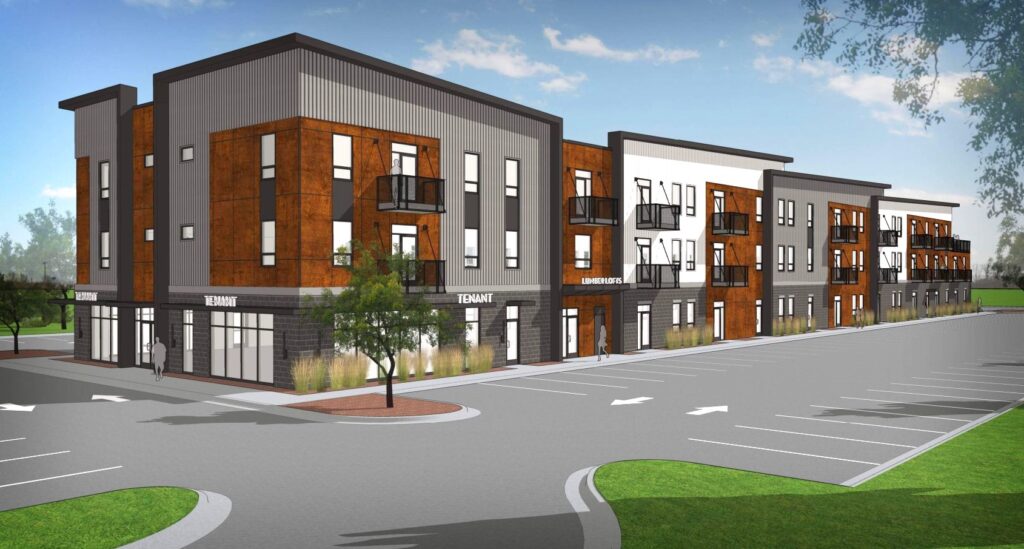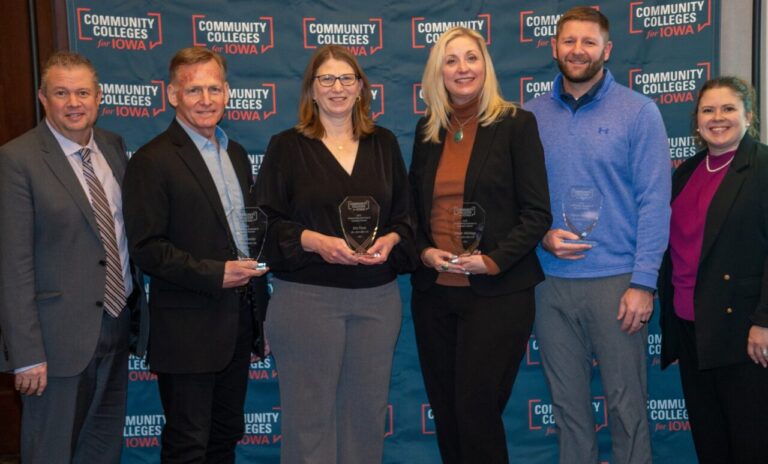MUSCATINE, Iowa – An $11.5 million project to turn a former Muscatine lumberyard site into apartments and commercial space has been selected to receive tax assistance from the State of Iowa.
The Hawkeye Lumberyard project, located at 910 E. Second St., will receive $1 million in tax credits and tax refunds, the Iowa Economic Development Authority announced on Tuesday, Aug. 20.
Also, a Davenport project has been selected to get more than $312,000 in assistance, according to state officials.
Awards totaling $37 million in workforce housing tax credits for 62 housing projects and more than 2,000 residential units across the state were announced. Go here to see a complete list of the awarded projects.
Building a new apartment/commercial space structure on the Hawkeye site will greatly help the community, said Dr. Brad Bark, the mayor of Muscatine, and the CEO and president of the Greater Muscatine Chamber of Commerce and Industry.
“This strategic location not only offers stunning river views, but also presents an opportunity to create a vibrant corridor into historic Muscatine, Iowa. This project will enhance our local economy and quality of life. Our vision is to transform the Hawkeye Lumberyard into a mixed-use development that will serve as a hub for young professionals, commerce, and visitors alike,” Dr. Bark told the QCBJ in an emailed message.
The former Hawkeye Lumberyard is located about a half mile from downtown, is adjacent to the riverfront multi-use trail and wider community trail network of over 12 miles; eligible for Tax Increment Financing; and immediately adjacent to the HNI Corporation headquarters, according to information from the City of Muscatine.
The Hawkeye project will feature constructing a building that will have 65 market-rate apartments and first floor commercial office space. The project has been selected to receive $688,112 in workforce housing tax credits and $311,888 in sales tax refunds, according to the state.
Construction on the project is expected to start next spring and scheduled to be complete in the fall of 2026, City of Muscatine officials told the QCBJ on Wednesday.
Some of the objectives of the Hawkeye project include: create more housing, redevelop vacant property, establish destination points to draw people, establish outdoor recreational or green space (trail, park, courtyard, etc.), and provide opportunities to live, work and recreate near the river, according to the city.
Build to Suit, based in Bettendorf, has been named the preferred developer for the project.
In addition to the Muscatine project, state officials also announced that the Riverview Heights Townhomes project in Davenport has been selected to get $312,791 in tax assistance. (That money will come from $240,000 in workforce housing credits and $72,791 in sales tax refunds.)
That project will consist of 16 apartment units and will be located in the 700 block of East Sixth St., Davenport, according to a City of Davenport council meeting agenda.
In May, the council approved a resolution of support for the submission of a Workforce Housing Tax Credit application for the Riverview Heights project.
“As we grow our state, our housing supply needs to keep up with demand,” Iowa Gov. Reynolds said in a news release Tuesday announcing the tax assistance. “Iowans who live near their jobs often become more invested in their communities, and that both strengthens local economies and attracts new residents.”
Debi Durham, director of IEDA and the Iowa Finance Authority, pointed to the recently released 2024 WalletHub report that lists Iowa in first place for most affordable housing — for the second year in a row.
“We want to hold onto that ranking as we build for the future,” Ms. Durham said in the release. “These incentives are critical to helping more communities attract and retain quality businesses and a diverse workforce.”
IEDA received 124 applications requesting $74 million in tax credits. IEDA had $35 million available for fiscal 2025, with an additional $2 million reallocation from fiscal 2024. Project applications were scored competitively based on readiness, documented financing, community impact, and developer experience.







